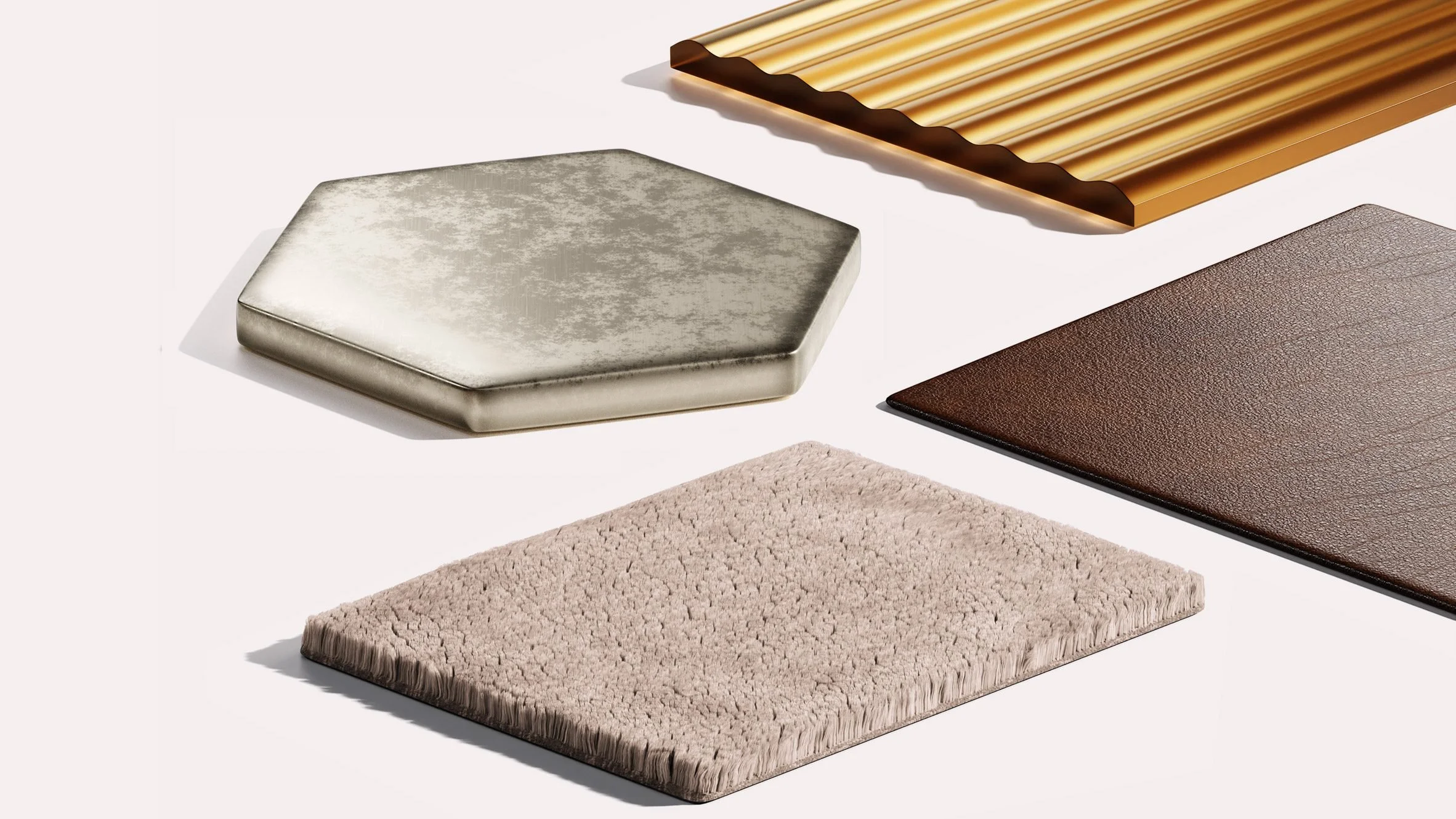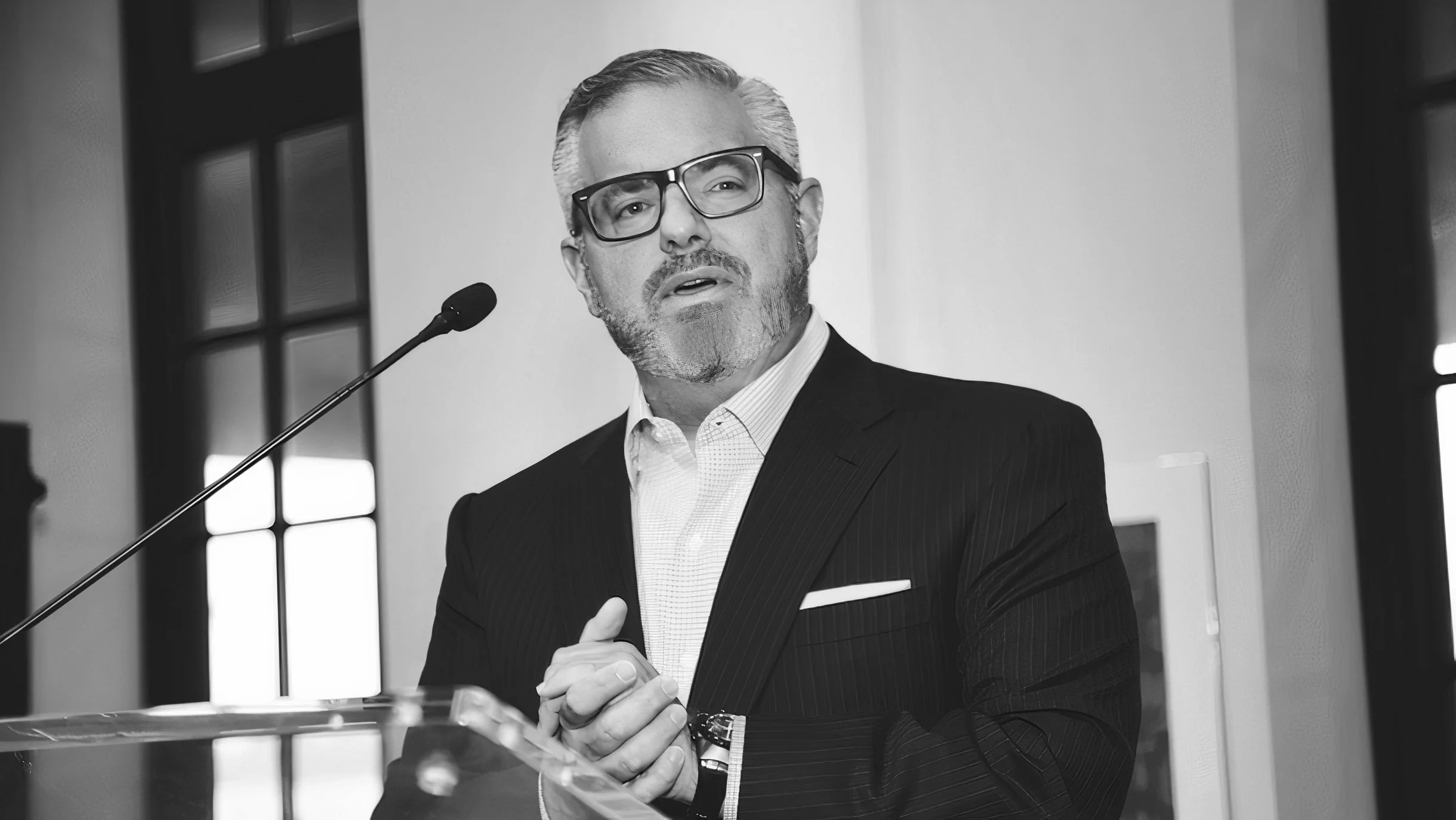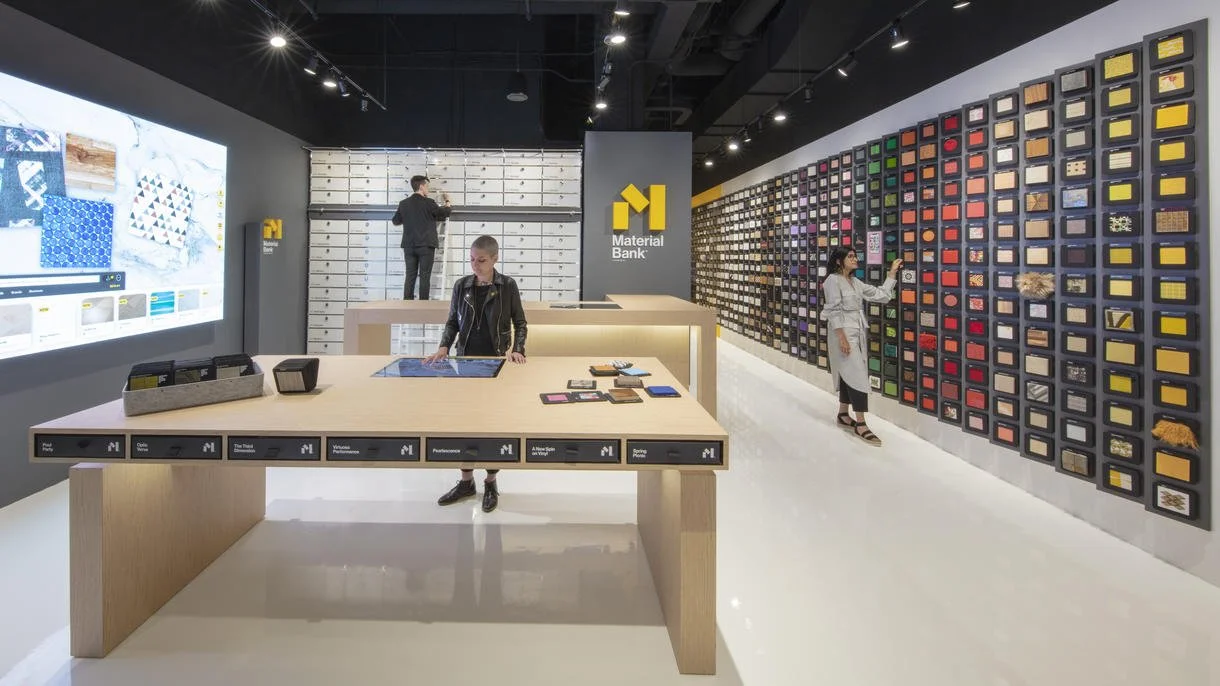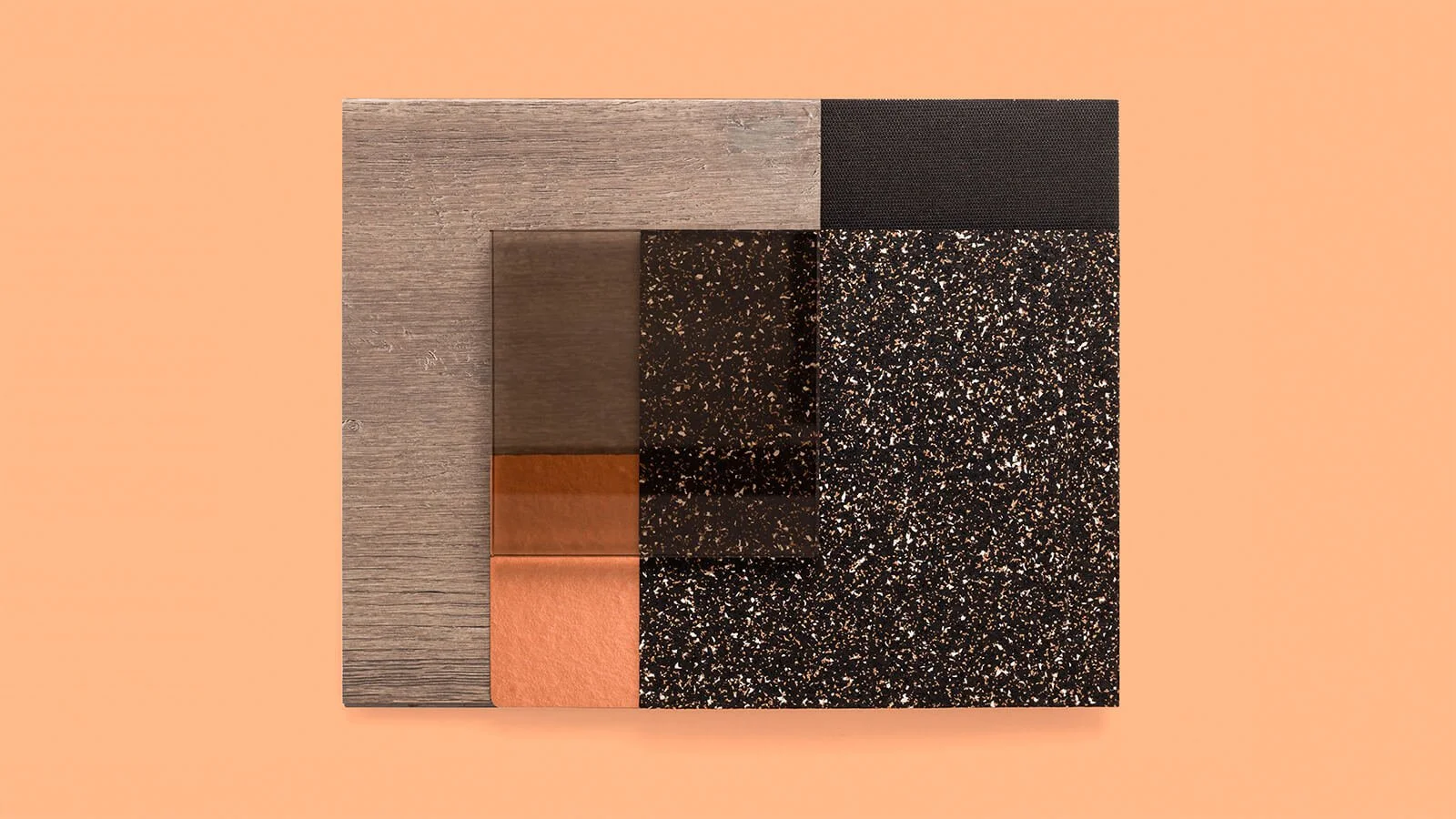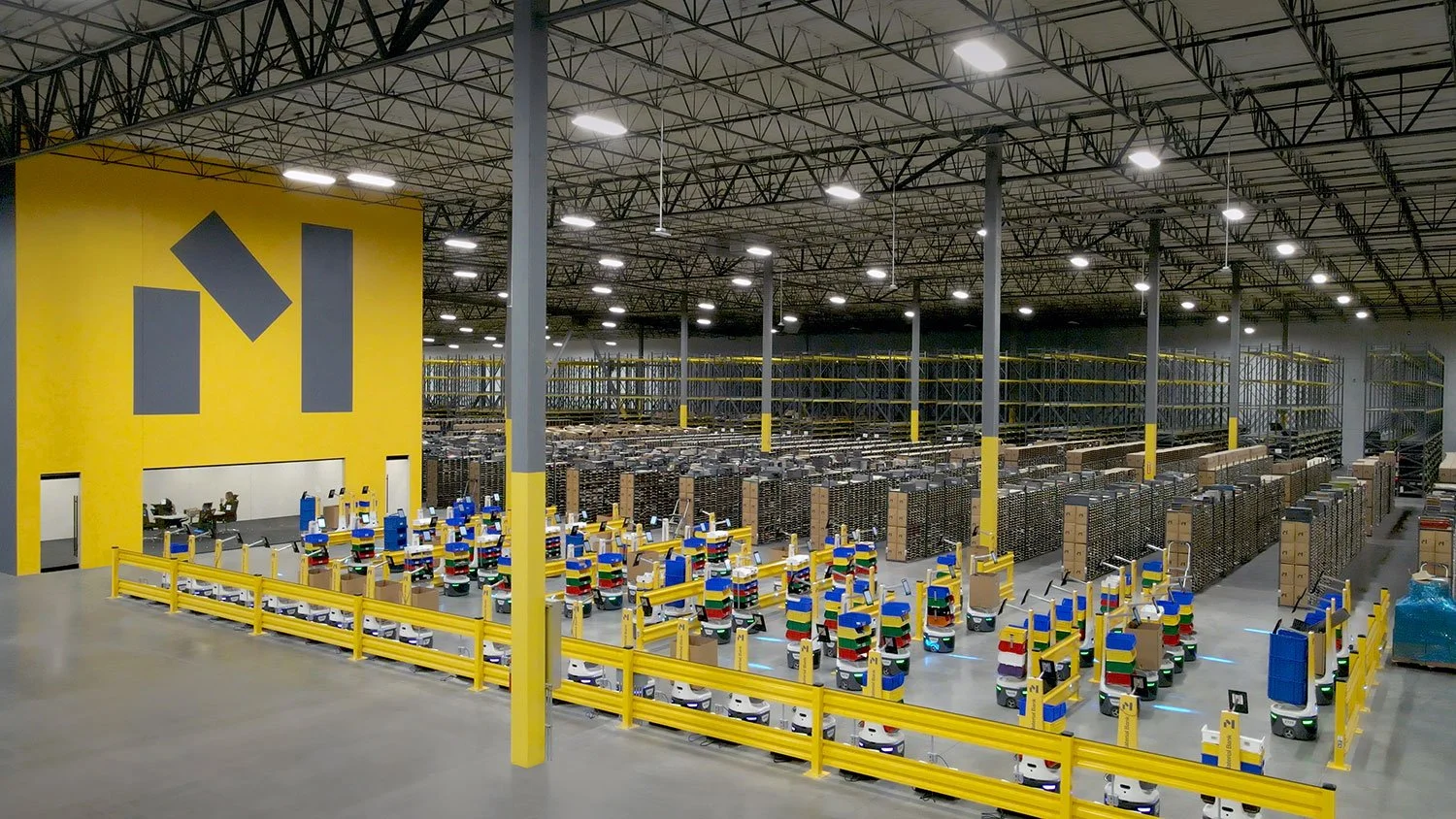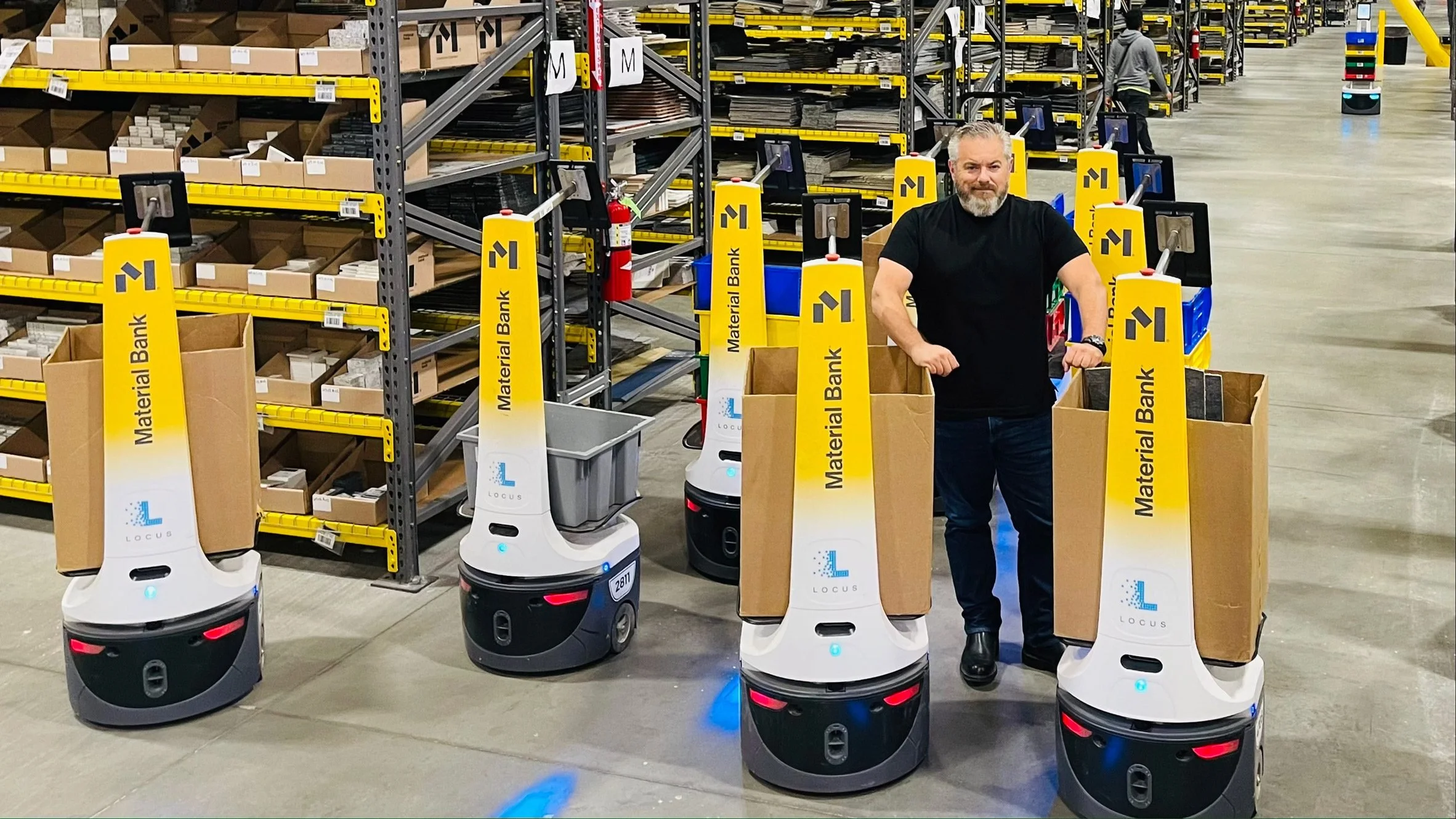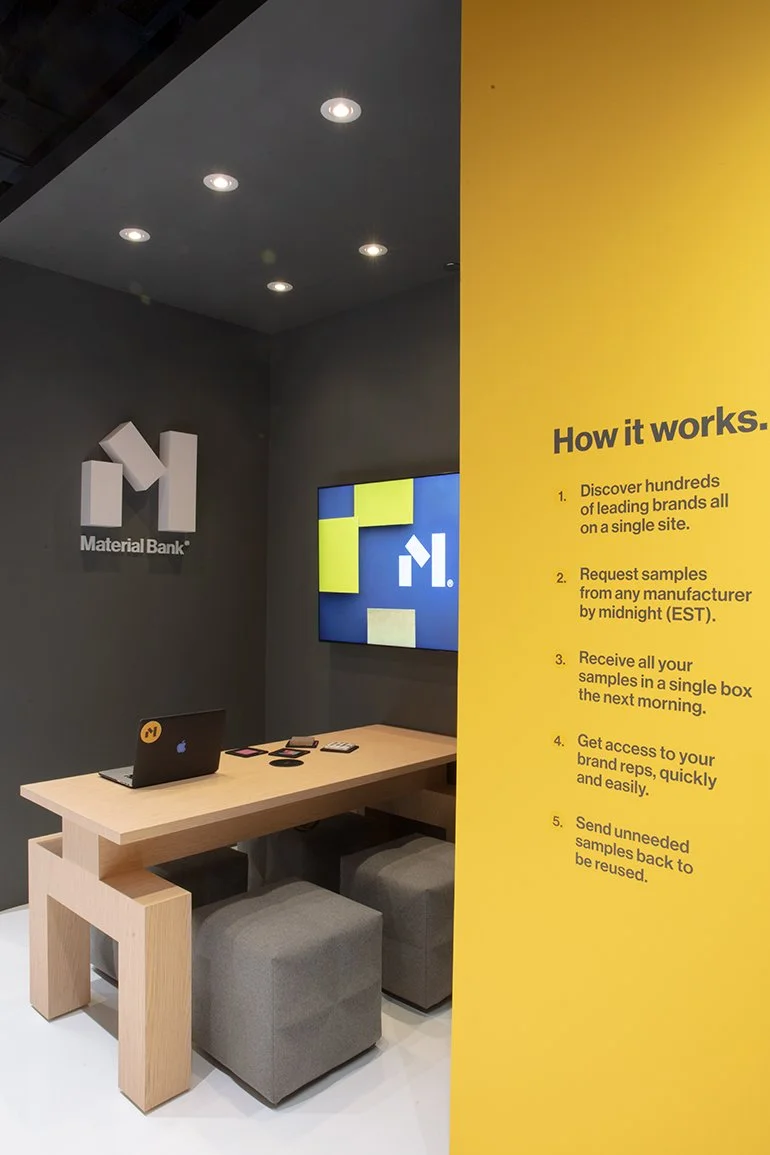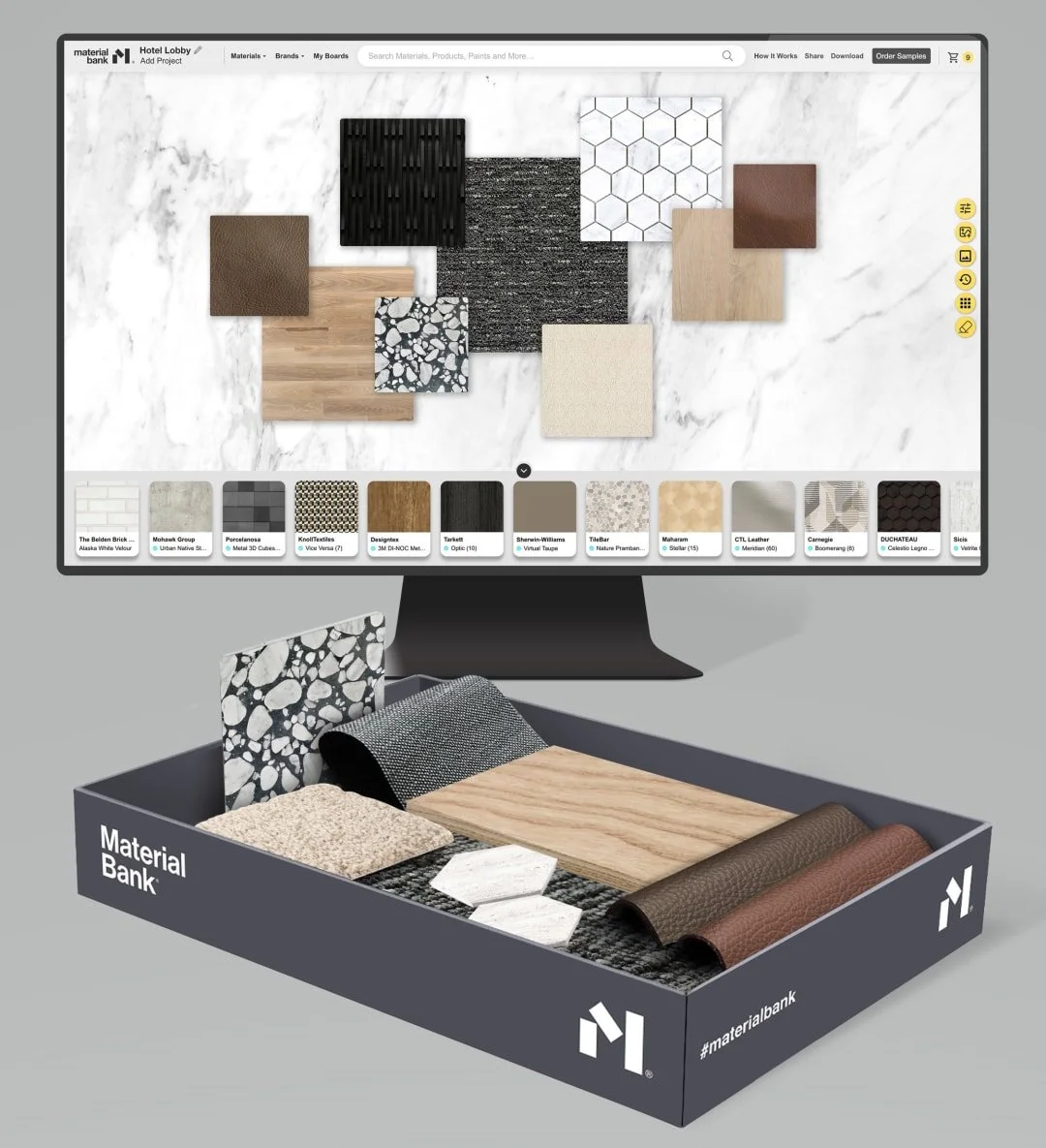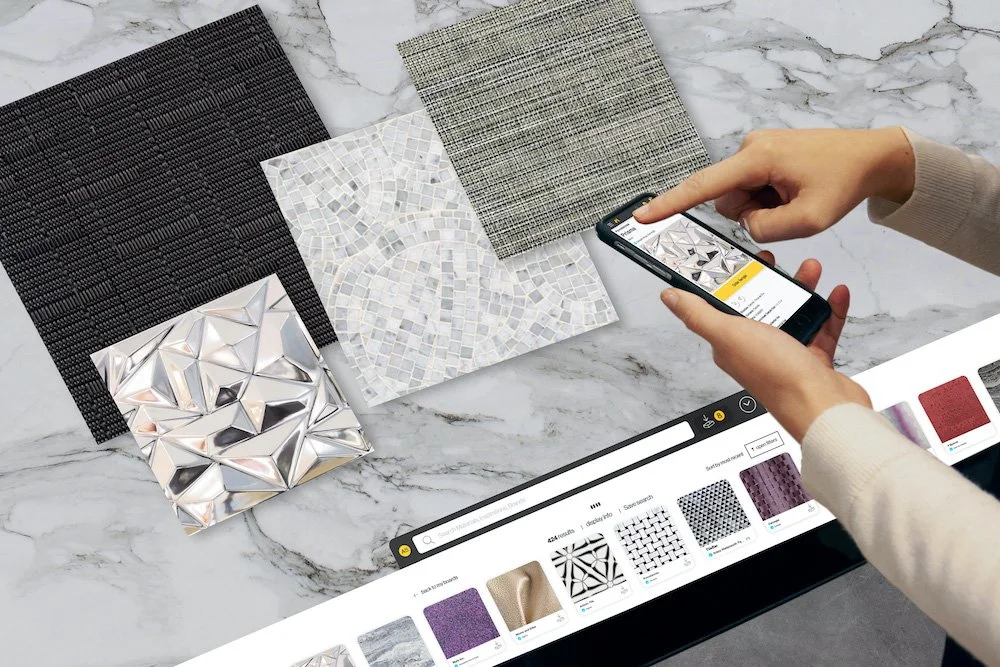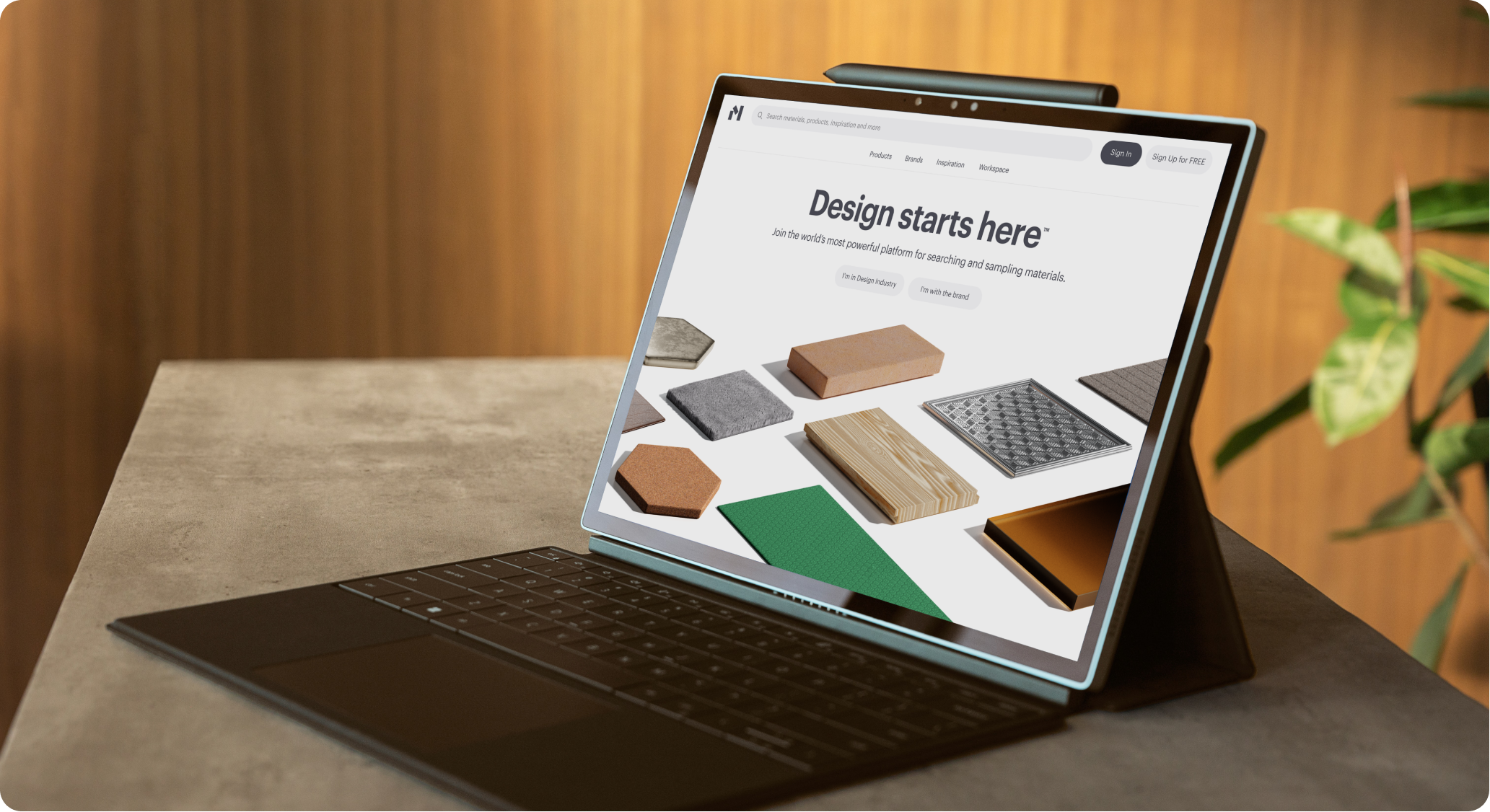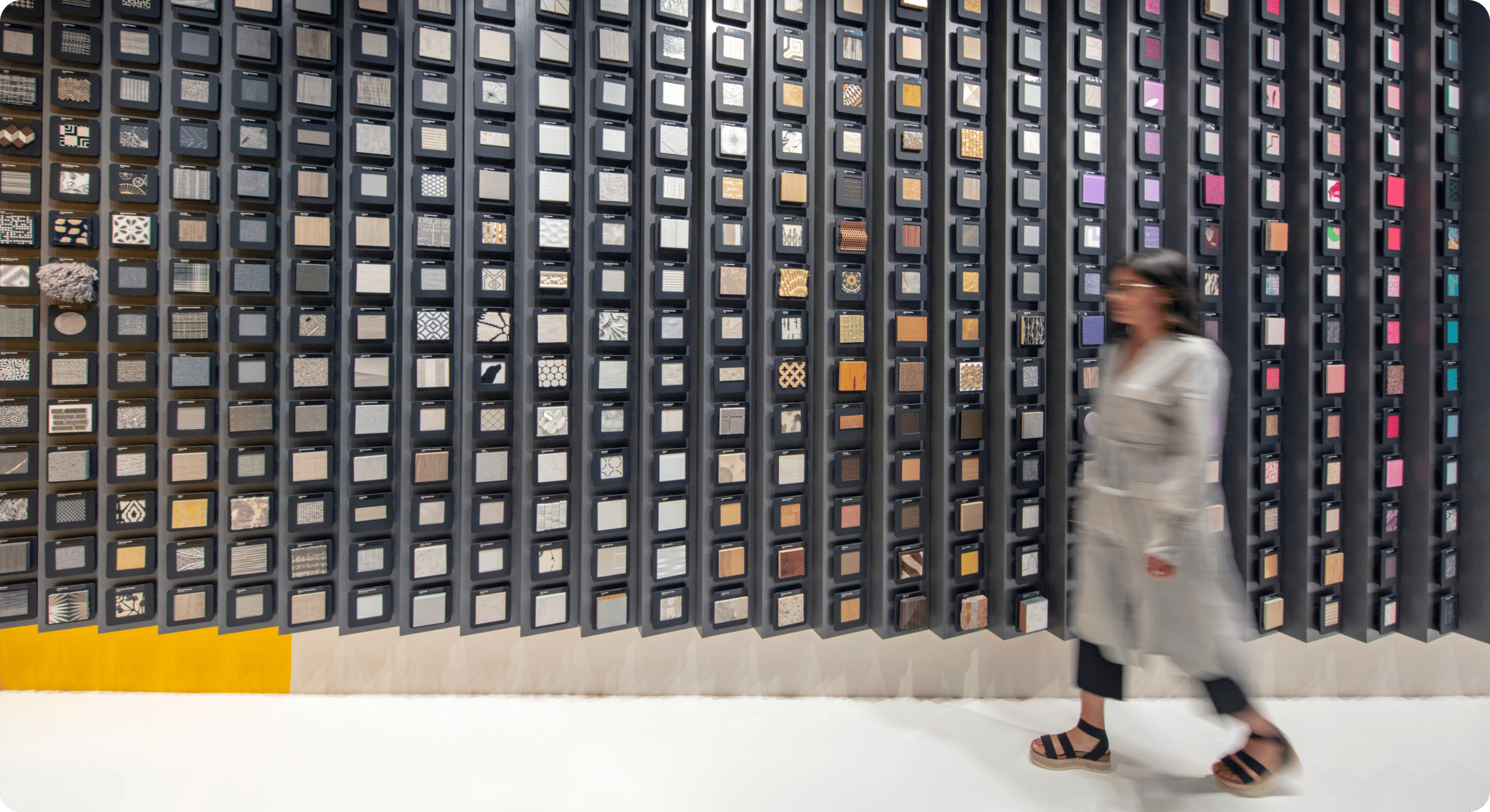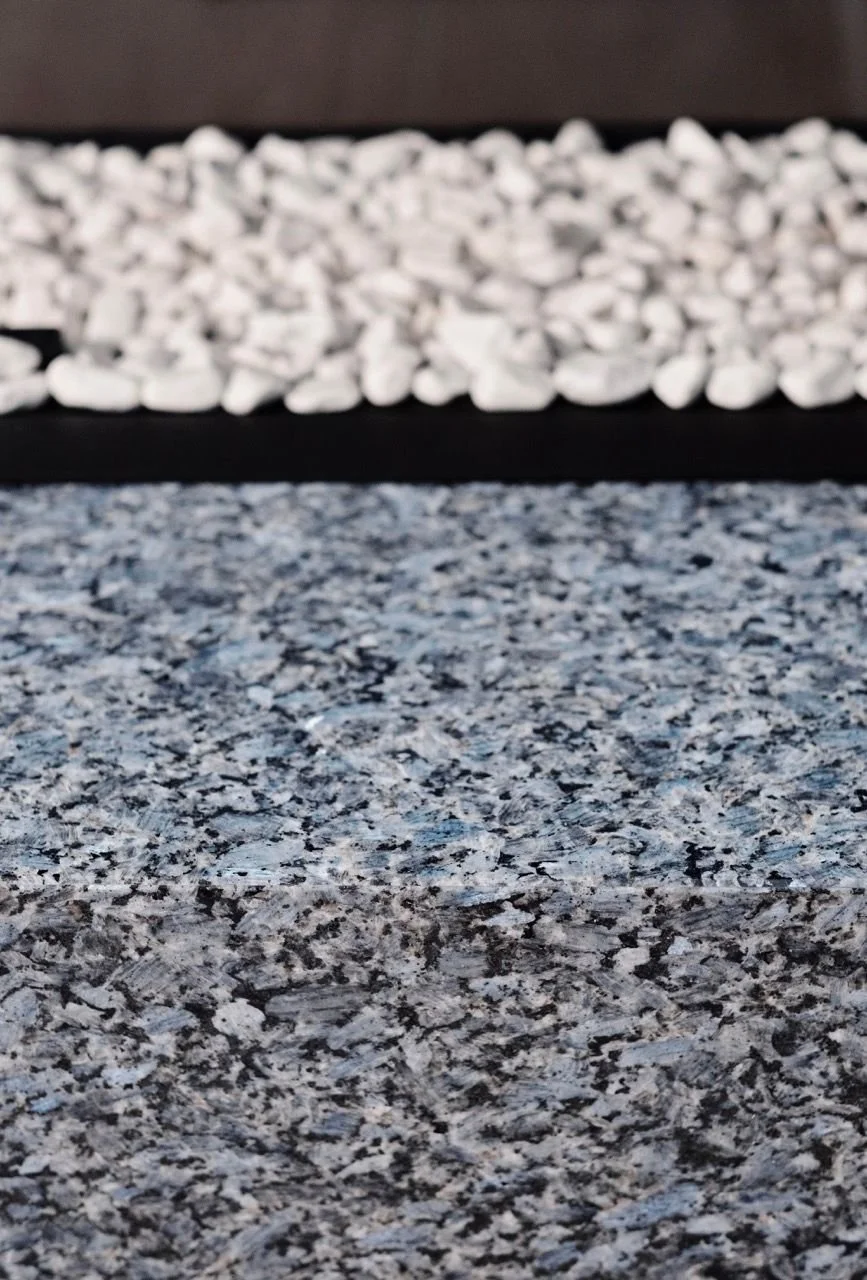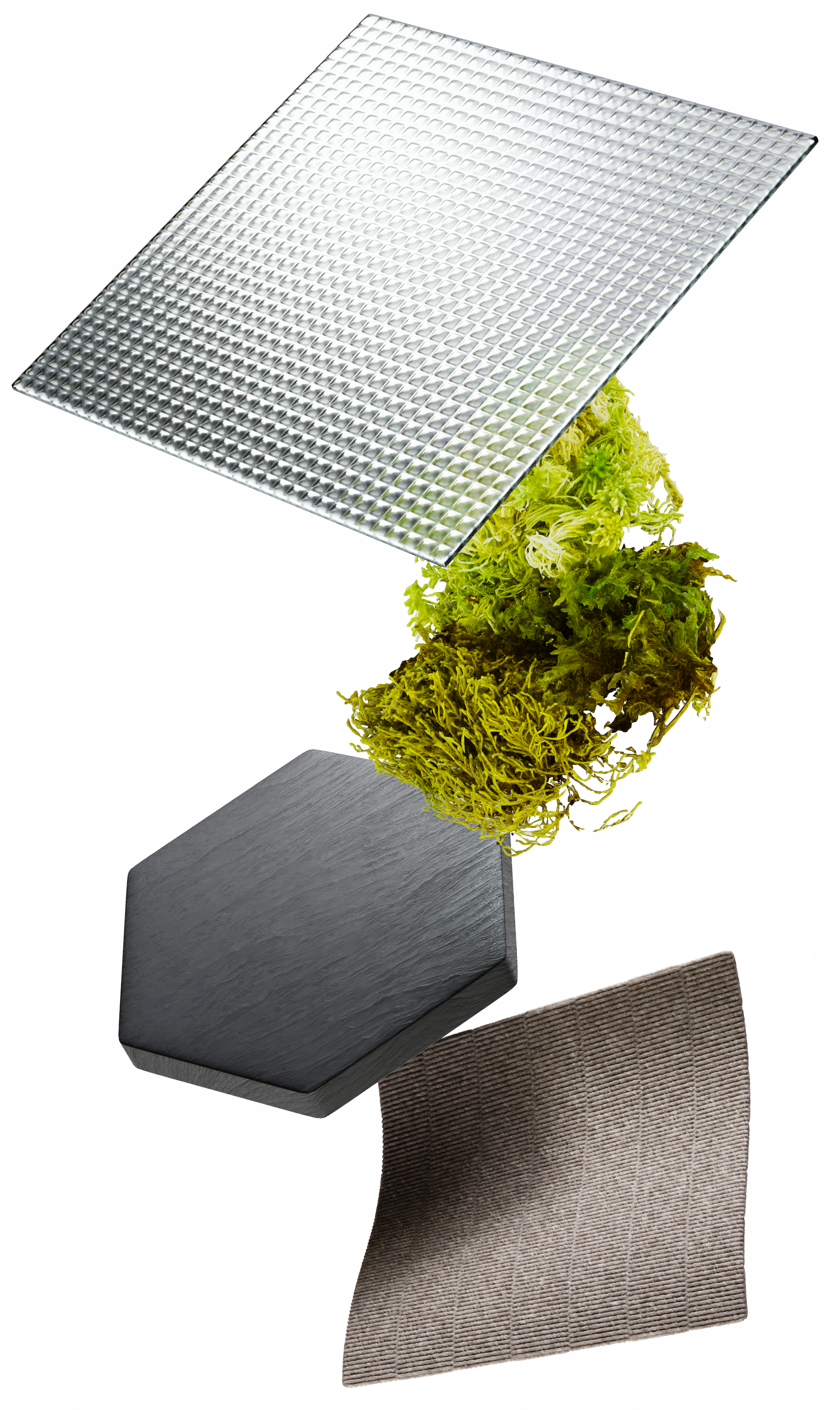Material Bank is revolutionising the more sustainable sampling process
Material Bank is a powerful platform for searching and sampling materials, founded in January 2019 by Adam Sandow. The company was established with the mission to streamline the material selection process for architects and designers, providing a comprehensive, efficient, and sustainable solution for material sourcing. Material Bank's current mission focuses on reducing the environmental impact of the sampling process while enhancing the user experience for design professionals. Core values include sustainability, innovation, and efficiency, with a purpose to support the architecture and design community by providing easy access to a vast array of materials.
Location
Headquarters: Boca Raton, Florida, USA.
Primary manufacturing/operations locations: Various locations across the United States and Europe.
Note: Strategic locations to optimize local sourcing, distribution, and collaboration with industry partners.
The Circular Vision
Core circular economy principles: Designing out waste, using sustainable and recycled materials, and creating products that are fully recyclable.
Key innovations: Development of a platform that consolidates sample deliveries into a single box, reducing packaging waste and shipping emissions. The use of reusable and returnable packaging trays.
Prioritization of local sourcing and closed-loop supply chains: Emphasis on minimizing environmental impact through efficient logistics and sustainable practices.
Pioneering Solutions
Flagship products: Material Bank platform for searching and sampling materials, including the "Design Your Impact" CEU webinar series on sustainable specifying.
Unique value propositions: High-quality, sustainable material solutions that prioritize circularity, material reuse, and environmental responsibility. Material Bank's platform provides an unparalleled experience for exploring and specifying materials with advanced search filters and detailed product information.
The Regenerative Future
R&D focus areas: Advancing sustainable materials, optimizing the sampling process, and developing new circular design principles.
Ambitious goals: To lead the material industry in sustainable practices, achieve net-zero carbon emissions by 2040, and inspire a shift towards a regenerative approach to material sourcing.
Fact Sheet
Commercial Availability: Services and materials available globally through direct engagement with companies and organizations.
Environmental Product Declaration (EPD): Available for many product categories, providing transparency on the sustainable character of products.
Circularity Rating: 5/5 (Strong focus on circular economy principles).
Key Certifications: Information not available.
Cost Rating: 4/5 (Competitive with conventional alternatives, with significant cost savings in sustainable materials).
Material Passport: Detailed material traceability and use of recycled and sustainable materials.
Designed for Disassembly: Yes, products and services are designed for easy disassembly and material reuse.
Carbon Performance: Focus on reducing carbon footprint through sustainable materials and local production. Committed to net-zero carbon emissions by 2040.
Key Takeaway
Material Bank transforms the material sourcing process through innovative, sustainable solutions, setting a benchmark for circularity and environmental responsibility in the architecture and design industry.
Explore Further
Material Bank website: https://www.materialbank.eu
Sustainability overview: https://www.materialbank.eu/sustainability
Example product: Material Bank platform - https://www.materialbank.eu/how-it-works
Material Bank is a powerful platform for searching and sampling materials, founded in January 2019 by Adam Sandow. The company was established with the mission to streamline the material selection process for architects and designers, providing a comprehensive, efficient, and sustainable solution for material sourcing. Material Bank's current mission focuses on reducing the environmental impact of the sampling process while enhancing the user experience for design professionals. Core values include sustainability, innovation, and efficiency, with a purpose to support the architecture and design community by providing easy access to a vast array of materials.
Location
Headquarters: Boca Raton, Florida, USA.
Primary manufacturing/operations locations: Various locations across the United States and Europe.
Note: Strategic locations to optimize local sourcing, distribution, and collaboration with industry partners.
The Circular Vision
Core circular economy principles: Designing out waste, using sustainable and recycled materials, and creating products that are fully recyclable.
Key innovations: Development of a platform that consolidates sample deliveries into a single box, reducing packaging waste and shipping emissions. The use of reusable and returnable packaging trays.
Prioritization of local sourcing and closed-loop supply chains: Emphasis on minimizing environmental impact through efficient logistics and sustainable practices.
Pioneering Solutions
Flagship products: Material Bank platform for searching and sampling materials, including the "Design Your Impact" CEU webinar series on sustainable specifying.
Unique value propositions: High-quality, sustainable material solutions that prioritize circularity, material reuse, and environmental responsibility. Material Bank's platform provides an unparalleled experience for exploring and specifying materials with advanced search filters and detailed product information.
The Regenerative Future
R&D focus areas: Advancing sustainable materials, optimizing the sampling process, and developing new circular design principles.
Ambitious goals: To lead the material industry in sustainable practices, achieve net-zero carbon emissions by 2040, and inspire a shift towards a regenerative approach to material sourcing.
Fact Sheet
Commercial Availability: Services and materials available globally through direct engagement with companies and organizations.
Environmental Product Declaration (EPD): Available for many product categories, providing transparency on the sustainable character of products.
Circularity Rating: 5/5 (Strong focus on circular economy principles).
Key Certifications: Information not available.
Cost Rating: 4/5 (Competitive with conventional alternatives, with significant cost savings in sustainable materials).
Material Passport: Detailed material traceability and use of recycled and sustainable materials.
Designed for Disassembly: Yes, products and services are designed for easy disassembly and material reuse.
Carbon Performance: Focus on reducing carbon footprint through sustainable materials and local production. Committed to net-zero carbon emissions by 2040.
Key Takeaway
Material Bank transforms the material sourcing process through innovative, sustainable solutions, setting a benchmark for circularity and environmental responsibility in the architecture and design industry.
Explore Further
Material Bank website: https://www.materialbank.eu
Sustainability overview: https://www.materialbank.eu/sustainability
Example product: Material Bank platform - https://www.materialbank.eu/how-it-works
Material Bank is a powerful platform for searching and sampling materials, founded in January 2019 by Adam Sandow. The company was established with the mission to streamline the material selection process for architects and designers, providing a comprehensive, efficient, and sustainable solution for material sourcing. Material Bank's current mission focuses on reducing the environmental impact of the sampling process while enhancing the user experience for design professionals. Core values include sustainability, innovation, and efficiency, with a purpose to support the architecture and design community by providing easy access to a vast array of materials.
Location
Headquarters: Boca Raton, Florida, USA.
Primary manufacturing/operations locations: Various locations across the United States and Europe.
Note: Strategic locations to optimize local sourcing, distribution, and collaboration with industry partners.
The Circular Vision
Core circular economy principles: Designing out waste, using sustainable and recycled materials, and creating products that are fully recyclable.
Key innovations: Development of a platform that consolidates sample deliveries into a single box, reducing packaging waste and shipping emissions. The use of reusable and returnable packaging trays.
Prioritization of local sourcing and closed-loop supply chains: Emphasis on minimizing environmental impact through efficient logistics and sustainable practices.
Pioneering Solutions
Flagship products: Material Bank platform for searching and sampling materials, including the "Design Your Impact" CEU webinar series on sustainable specifying.
Unique value propositions: High-quality, sustainable material solutions that prioritize circularity, material reuse, and environmental responsibility. Material Bank's platform provides an unparalleled experience for exploring and specifying materials with advanced search filters and detailed product information.
The Regenerative Future
R&D focus areas: Advancing sustainable materials, optimizing the sampling process, and developing new circular design principles.
Ambitious goals: To lead the material industry in sustainable practices, achieve net-zero carbon emissions by 2040, and inspire a shift towards a regenerative approach to material sourcing.
Fact Sheet
Commercial Availability: Services and materials available globally through direct engagement with companies and organizations.
Environmental Product Declaration (EPD): Available for many product categories, providing transparency on the sustainable character of products.
Circularity Rating: 5/5 (Strong focus on circular economy principles).
Key Certifications: Information not available.
Cost Rating: 4/5 (Competitive with conventional alternatives, with significant cost savings in sustainable materials).
Material Passport: Detailed material traceability and use of recycled and sustainable materials.
Designed for Disassembly: Yes, products and services are designed for easy disassembly and material reuse.
Carbon Performance: Focus on reducing carbon footprint through sustainable materials and local production. Committed to net-zero carbon emissions by 2040.
Key Takeaway
Material Bank transforms the material sourcing process through innovative, sustainable solutions, setting a benchmark for circularity and environmental responsibility in the architecture and design industry.
Explore Further
Material Bank website: https://www.materialbank.eu
Sustainability overview: https://www.materialbank.eu/sustainability
Example product: Material Bank platform - https://www.materialbank.eu/how-it-works

